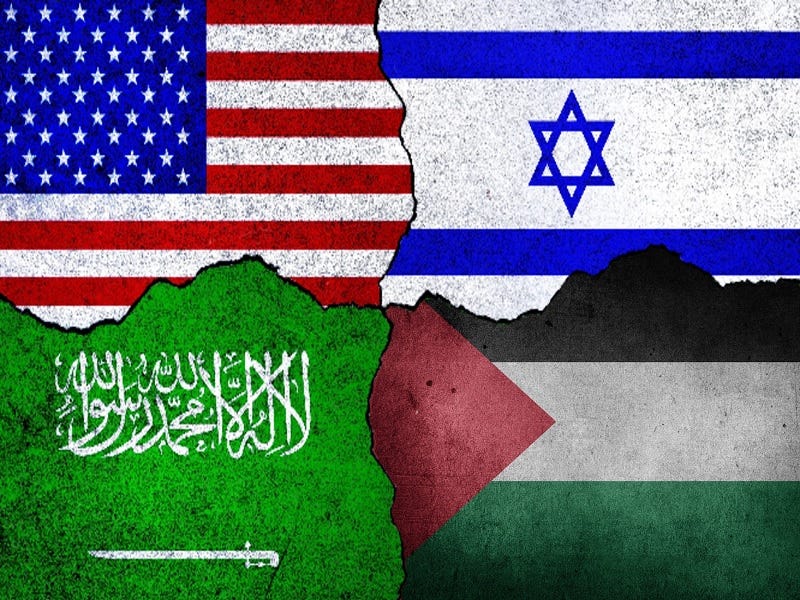There’ll be those activist-minded members of the Mainstream Media and the Alt-Media Community who’ll pick and choose which element of this policy to focus on in advance of their ideological agenda but the fact of the matter is that the entire whole represents a comprehensive diplomatic push.
Many observers from the Mainstream Media and the Alt-Media Community alike were shocked when Defense Secretary Austin confirmed on Wednesday during a congressional testimony that the US had withheld “one shipment of high payload munitions” on the pretext that they could be used in Rafah. Biden then expanded on this newfound policy later in the day when declaring that “We’re not going to supply the weapons and artillery shells” if the IDF goes into Rafah’s population centers.
Nobody should have been surprised, however, since this piece here from mid-March about why Biden endorsed Schumer’s call for regime change in Israel explained the double game that his administration is playing. In brief, domestic electoral considerations influenced his team into ramping up last spring’s pressure campaign against Bibi, which was initially meant to punish him for ideological reasons but is now also aimed at pressuring Israel into the regional peace deal that it’s reportedly trying to broker.
Interested readers can learn more about it here, with the pertinence being that the US envisages Saudi Arabia recognizing Israel in exchange for Israel agreeing to Palestinian statehood. In furtherance of that grand strategic goal, which would reshape West Asian geopolitics, the US is dangling privileged nuclear energy and military partnerships in front of Saudi Arabia while gradually increasing its pressure on Israel. It also reportedly told Qatar to expel Hamas’ political wing if it doesn’t agree to a ceasefire.
There’ll be those activist-minded members of the Mainstream Media and the Alt-Media Community who’ll pick and choose which element of this policy to focus on in advance of their ideological agenda but the fact of the matter is that the entire whole represents a comprehensive diplomatic push. The US sees an opportunity to restore some of its lost regional influence through these means, which its policymakers believe will decelerate the recent expansion of Sino-Russo influence in West Asia.
Withholding a single arms shipment from Israel is a purely symbolic gesture that comes way too late to prevent the humanitarian catastrophe that unfolded in Gaza over the past eight months of total war, but it still signals that more forthcoming shipments might be withheld if Israel continues its Rafah operation. In that event, bilateral relations would worsen if Bibi doesn’t accept a compromise solution, which he’d be reluctant to do since that would discredit him after he promised to completely destroy Hamas.
Therein lies the problem, however, since that objective can only be achieved through military means that would perpetuate the Palestinians’ suffering and thus delay the deal that the US hopes to broker with the Saudis. The Kingdom won’t recognize Israel so long as the conflict continues, and a greater civilian death toll than the already presently high one could make it even more difficult to do so once the war finally ends. That deal is integral to Israel’s interests, but so too is Hamas’ destruction, ergo the dilemma.
Nevertheless, provided that Israel has adequate stockpiles to continue its campaign, then Bibi might gamble that he can destroy Hamas’ military wing at least and then play on the Saudis’ equal interest in the previously mentioned deal to eventually make it happen sometime after the war ends. That can’t be taken for granted though since the US wouldn’t have symbolically withheld is recent shipment nor would Biden have threatened to withhold all offensive arms if it thought this was truly the case.
It therefore remains to be seen what’ll happen, but the US expects that Bibi will indeed be pressured by this newfound policy into compromising on Gaza, which could discredit his leadership among the ultra-nationalist members of his coalition on whom his government depends. Basically, the US wants to kill three birds with one stone by bringing an end to this war for domestic electoral reasons, facilitating Bibi’s departure from office, and brokering an Israeli-Saudi peace deal for restoring its lost regional influence.




